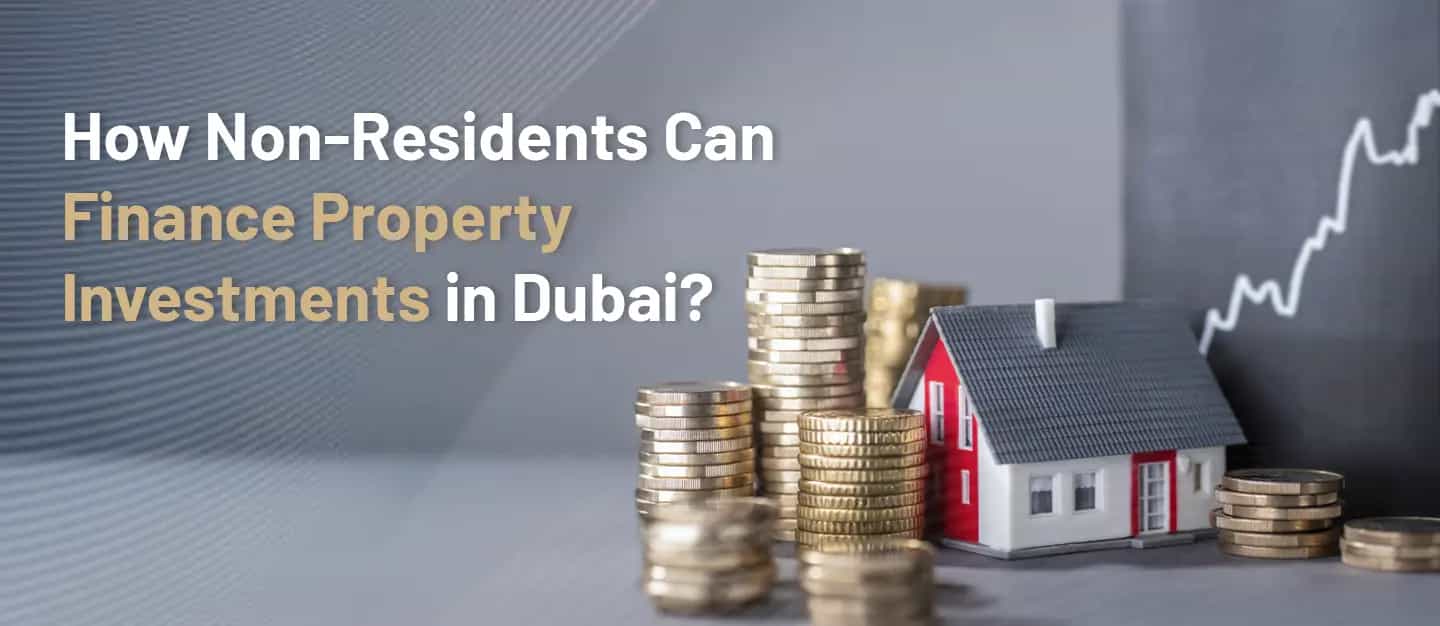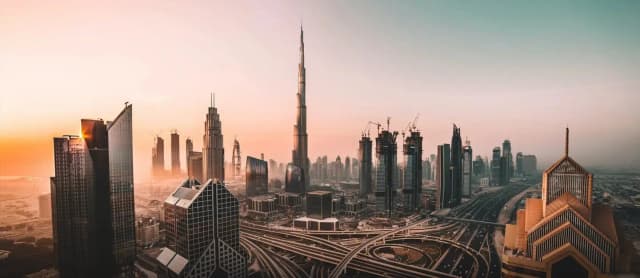The city's robust infrastructure, strategic location, and high rental yields make it an ideal destination for property investors worldwide. However, financing property investments in Dubai as a non-resident requires a strategic approach and a clear understanding of the financial landscape. Here’s a comprehensive guide to help non-residents navigate the process.
1. Why Invest in Dubai Real Estate?
Before delving into financing options, let’s explore why Dubai’s real estate market is a prime choice for non-residents:
High ROI: Dubai offers some of the highest rental yields globally, ranging between 5% and 9% annually.
Tax Benefits: There is no property tax or capital gains tax, making it an attractive option for maximizing profits.
Regulatory Transparency: The Dubai Land Department (DLD) and Real Estate Regulatory Agency (RERA) ensure transparent transactions and protect investors’ rights.
Diverse Investment Options: From ultra-luxury villas to affordable apartments, Dubai caters to various investment preferences and budgets.
Residency by Investment: Property investments worth AED 750,000 or more can qualify non-residents for long-term residency visas.
2. Financing Options for Non-Residents
Non-residents investing in Dubai real estate can explore various financing avenues, including mortgage loans, private funding, and self-financing. Each option has specific requirements and benefits.
a. Non-Resident Mortgages
Several banks and financial institutions in Dubai offer mortgage facilities tailored for non-residents. These mortgages typically cover up to 50%-70% of the property value.
Key Requirements:
Minimum Income: Most banks require proof of a stable monthly income, usually starting from AED 15,000 or equivalent.
Down Payment: Non-residents must pay a minimum of 30%-50% as a down payment.
Employment Stability: A minimum of six months of continuous employment or business operation is often required.
Credit History: A good credit score in your home country or internationally is essential.
Documentation:
Passport copy
Valid visa (if applicable)
Bank statements (last six months)
Proof of income (salary certificate or audited financial statements for business owners)
b. Developer Payment Plans
Leading developers in Dubai, such as Emaar, Damac, and Sobha, offer flexible post-handover payment plans. These plans allow non-residents to pay for the property in installments over several years, even after the property is completed.
Advantages:
No need for immediate full payment.
Interest-free installments.
Lower upfront costs compared to mortgages.
c. Private Financing
Private lenders or specialized investment firms can also assist non-residents with property financing. While these options may come with higher interest rates, they often have more flexible approval processes and fewer documentation requirements.
d. Self-Financing
Many non-residents opt for self-financing by utilizing their savings or leveraging assets in their home country. This eliminates the need for interest payments and ensures full ownership without third-party involvement.
3. Understanding the Costs Involved
When financing a property investment in Dubai, it’s essential to account for additional costs beyond the property price:
Down Payment: 30%-50% of the property value.
DLD Fees: 4% of the property’s purchase price.
Agent Commission: Typically 2% of the property value.
Valuation Fees: AED 2,500 to AED 5,000.
Mortgage Processing Fees: Around 1% of the loan amount.
Annual Service Charges: Vary based on the property and community.
4. Steps to Secure Financing as a Non-Resident
Follow these steps to streamline your property financing journey in Dubai:
Research the Market: Understand Dubai’s real estate trends, key areas, and property types that align with your investment goals.
Assess Your Budget: Calculate how much you can afford, including down payment, additional fees, and financing terms.
Choose a Financing Option: Decide between a mortgage, developer payment plan, private funding, or self-financing based on your financial situation.
Prepare Documentation: Gather all required documents, including proof of income, bank statements, and identification.
Apply for Financing: Approach banks, developers, or private lenders to discuss financing options and submit your application.
Finalize the Purchase: Once financing is approved, complete the transaction by signing the sales agreement and paying the necessary fees.
Register the Property: Register the property with the Dubai Land Department to secure ownership rights.
5. Key Areas for Non-Resident Investors
Dubai offers diverse neighborhoods, each with unique advantages for property investors. Popular areas include:
Downtown Dubai: Ideal for high-end apartments with iconic views of the Burj Khalifa and Dubai Fountain.
Dubai Marina: Offers waterfront living with luxury apartments and vibrant nightlife.
Palm Jumeirah: Known for exclusive villas and premium lifestyle amenities.
Business Bay: A hub for professionals, offering modern apartments with proximity to the city’s business district.
Jumeirah Village Circle (JVC): Affordable properties with high rental demand.
6. Benefits of Investing in Dubai Real Estate as a Non-Resident
Capital Appreciation: Dubai’s real estate market is poised for growth, ensuring long-term value appreciation.
Flexible Financing: Numerous financing options cater to non-residents’ unique needs.
Stable Economy: Dubai’s diversified economy and government initiatives ensure a stable investment environment.
Global Connectivity: As a major international hub, Dubai attracts expatriates and tourists, boosting demand for rental properties.
7. Challenges and Tips for Non-Resident Investors
While Dubai’s real estate market is lucrative, non-resident investors may face challenges such as:
Currency Exchange Fluctuations: Keep an eye on currency exchange rates as they can impact the overall cost of your investment.
Legal Complexities: Engage a reputable real estate agent or legal advisor to navigate Dubai’s property laws.
Loan Approval Delays: Ensure all documentation is accurate and complete to avoid delays in mortgage processing.
Tips for Success:
Work with licensed real estate agents and brokers.
Conduct due diligence on developers and properties.
Diversify your portfolio to minimize risks.
Consider long-term investment goals instead of short-term gains.
Financing property investments in Dubai as a non-resident may seem complex, but with the right knowledge and preparation, it’s a highly rewarding endeavor. By leveraging Dubai’s investor-friendly policies, high ROI potential, and diverse financing options, non-residents can build a profitable real estate portfolio. Whether you choose a mortgage, developer payment plan, or self-financing, understanding the market dynamics and costs involved will set you on the path to successful property investment in Dubai.
If you’re ready to explore opportunities in Dubai’s real estate market, connect with experienced property consultants to guide you through the process seamlessly.






